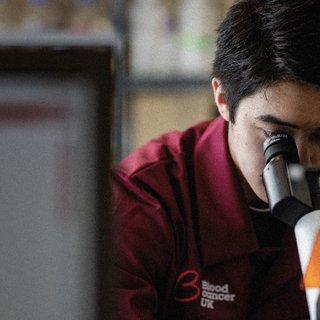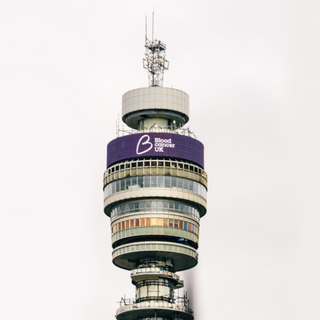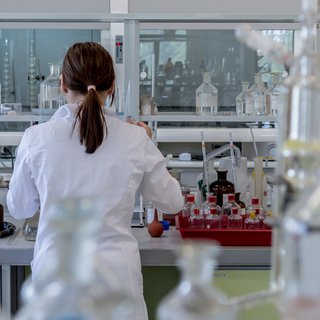Funding bold ideas in blood cancer research
United Kingdom
We’re delighted to be investing in 12 new research projects across all blood cancer types including leukaemia, lymphoma, and myeloma.
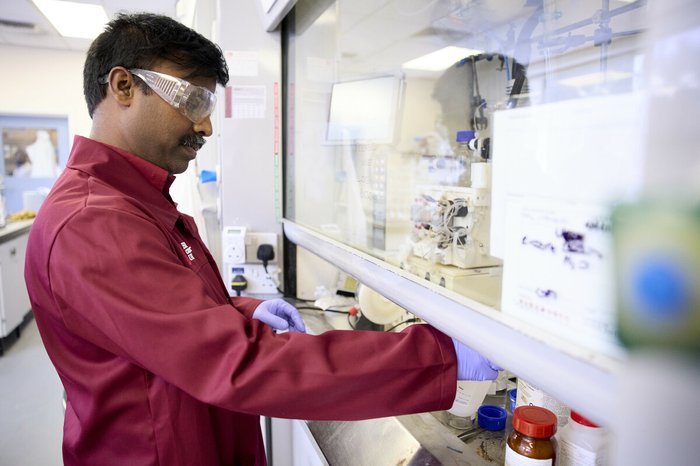
Researcher in the lab
All breakthroughs start with an idea. This research could be the beginning of a brighter future for people with blood cancer.
- Dr Rubina Ahmed, Director of Research, Policy and Services at Blood Cancer UK.
Some of the most important breakthroughs in blood cancer start with bold, untested ideas, but these are often the hardest to fund. Without early data, many projects don’t get off the ground.
Our innovative Pilot Grants target funding for researchers to test original approaches and generate the first results to unlock major funding.
Our 12 new research projects
Dr Callum Wright from Newcastle University is researching how the immune system reacts following a bone marrow transplant to aid in the development of better drugs and treatments for those who have received the transplant.
Dr Lynn Quek from King’s College London wants to understand why people with chronic lymphocytic leukaemia (CLL) have a high risk of infection following treatment. They will analyse blood and immune cells as part of this project.
Dr Alasdair Duguid from University of Edinburgh is developing a new way of studying brain tissue in detail. The want to find new and more effective ways to treat B-cell acute lymphoblastic leukaemia (B-ALL).
Dr Matthew Blunt from University of Southampton is researching a new way to treat people with non-Hodgkin lymphoma (NHL) using immunotherapy that activates the immune system to attack lymphoma cells.
Dr Mihkel Örd from University of Cambridge is studying molecules that block a specific protein, which many blood cancers rely on to grow and survive. They hope this will lead to better ways to treat blood cancer.
Dr Niklas Feldhahn from Imperial College London wants to create new ways to study enhancers that cause the cancer cells to grow and divide to find new ways to stop leukaemia and lymphoma growing.
Dr Shuchi Agrawal Singh from Imperial College London wants to understand why people with acute myeloid leukaemia (AML) don’t always respond to treatment by studying a group of proteins that are important in how the disease develops, spreads and responds to treatment.
Dr David Bartlett from University of Surrey is investigating a new approach involving a home-based exercise and diet program to help treat fatigue in people with chronic lymphocytic leukaemia (CLL).
Dr Richard McNally from Newcastle University wants to explore patterns in data to try to understand any potential risks of CT scans that may be linked to children developing blood cancer.
Dr Nicola Maciocia from University College London is researching ways to help improve a new CAR T-cell therapy for people with T-cell acute lymphoblastic leukaemia (T-ALL), so people remain cancer free for longer.
Dr Simona Valletta from University of Manchester is studying whether drugs that block inflammation alongside traditional drug treatments help older people with acute myeloid leukaemia (AML) respond better to treatment.
Dr Katrina Lappin from Queen's University Belfast wants to understand how cancer cells can avoid detection by the immune system and are able to better target acute myeloid leukaemia (AML) cancer cells.
Beating blood cancer takes research
From exploring new potential treatment pathways to uncovering insights into disease mechanisms and progression, these projects are designed to open doors to new discoveries and advance how blood cancer is understood and treated.
Beating blood cancer takes research. Thanks to your support we’re able to fund these exciting new projects and get us closer to the day where no-one dies from blood cancer or its treatments.
We can’t wait to share what comes next.
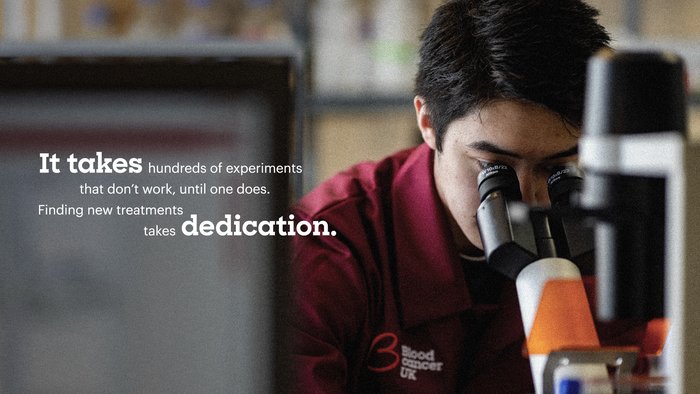
Sign up to receive email updates
Direct to your inbox every month.
We will keep you updated about our work and the ways you can help, including campaigns and events. We promise to respect your privacy and we will never sell or swap your details.

